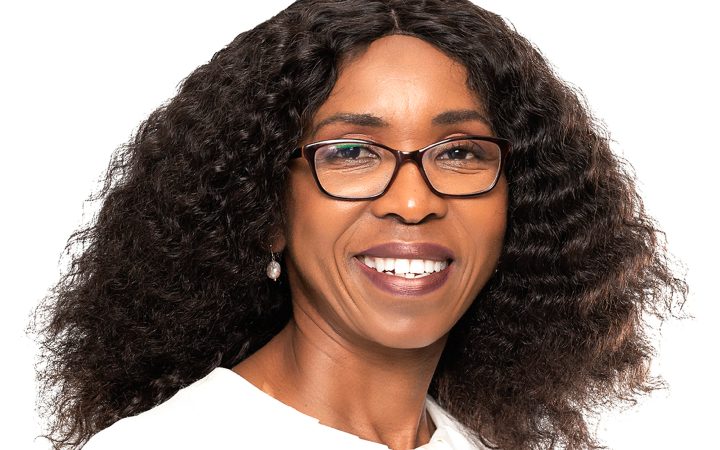MAVERICK CITIZEN
Local economic development must widen horizons for black people, says town planner Lulu Gwagwa

Town planner Lulu Gwagwa suggests turning the concept of local economic development on its head, but notes that this will only be possible when leaders are ready and willing to initiate and lead meaningful, sustainable change in people’s lives.
South Africa’s first black town planner, Lulu Gwagwa, was the keynote speaker at the third annual Thabo Makgoba Lecture at the University of Fort Hare, where she spoke about leadership in local economic development.
She said the university had moulded political leaders such as Nelson Mandela, Phyllis Ntantala-Jordan, Archbishop Desmond Tutu, Professor Barney Pityana and Wendy Luhabe, and that the university continued to make a mark in the country, continent and the world.
Fort Hare, she said, had always encouraged independent thinkers who care deeply about the world and most importantly the wellbeing of the citizens of Africa, and their position in relation to the rest of the world.
Gwagwa was moved by the story of Archbishop Thabo Makgoba, saying that his book Faith and Courage: Praying with Mandela mirrored the history of many black people in South Africa. She said Makgoba came from very humble beginnings and managed to become Anglican Archbishop of Cape Town.
During apartheid, Makgoba’s family was forcibly removed twice, losing their land and heritage. The second removal of his family from Alexandra township to Soweto “crushed your father’s masculinity and left him unable to protect or provide” for the family.
Gwagwa said that Makgoba’s story sparked the question of whether we as a society, “fully grasp the avalanche of violence that black people endured in this country. Is it possible to really think about the future of South Africa as a nation, if we’re not paying enough attention to such deep internalised trauma?”
She asked whether it is realistic for anyone “to just work hard and not pay attention to the poverty around you, because it’s not your destiny.”
On the invitation to speak on leadership in local economic development, Gwagwa said it was an opportunity to grapple with her own frustrations about “how we have come to understand and implement local economic development (LED) in the local government space”.
She said that the LED focus needed to shift from being merely about “projects” to long-term economic impact, and posed four questions:
- Is our approach to LED answering the right questions?
- In what way are institutions of higher learning sharpening our questions about LED and about development broadly?
- Is it time for a different kind of leadership?
- What about social agencies, what are we as citizens doing about the leadership of local economic development?
Municipalities are charged with putting together integrated development plans that reflect the council’s development priorities and objectives for each elected term, said Gwagwa. LED is an approach towards economic development that allows and encourages people to work together to achieve sustainable economic growth and development by bringing economic benefits and improved quality of life to all residents in the municipality, she said.
Gwagwa said that in most municipalities creating conditions for LED meant just the delivery of projects. “In my world, projects can never be local economic development and I want to repeat this: projects can never equal local economic development.”
She said linking local economic development to council delivery priorities for the municipality’s electorate reinforces the idea of tangible outputs of projects within a four-year period. That means that municipalities and councillors must focus on delivering these tangible outputs within those four years.
“We know that approaching economic development within an election cycle of four years has the unintended consequences of a delivery wish list, which in most instances does not address long-term outcomes, which is what development is really about.”
She said linking local economic development to councils assumes that economic activity is bound by administrative boundaries, which created disincentives to any coordination and integration objectives.
“Are we perhaps in the way we interpret LED confusing means and ends by conceiving local economic development as an end? What if we view LED as a means to which we achieve holistic human development outcomes, and therefore see it as an end?”
She suggested turning the concept of local economic development on its head, but she noted that this would only be possible when leaders are ready and willing to initiate and lead meaningful, sustainable change in people’s lives.
Gwagwa shared the story of Debbie Sterling, a product design engineer from Stanford University who was named Time magazine’s person of the moment for paving the way for a whole generation of girls to be in the male dominated sector of engineering.
Where are our own Debbie Sterlings? asked Gwagwa. Who are those leaders, willing to dig deep to ensure that the approach to LED widens horizons for black people in particular, rather than entrenching existing stereotypes of black people inherently not being able to participate in certain sectors?
Gwagwa said she wanted to dispel the myth that black people were not entrepreneurial. She was emphatic that, “Development problems require a holistic and interdisciplinary approach that addresses source, rather than manifestations of problems.”
She said institutions of higher learning had an important role in building, enabling and unlocking the potential of human capacity to deal with complex problems.
“This new generation is facing environmental, social and governance questions. It is a generation that is about building their portfolios.”
Gwagwa contended that people needed to look at local governance not just as service delivery, but as service to citizens and the country.
Rebuilding social capability is essential to a sustainable local economy, said Gwagwa. DM/MC
Like what you’re reading? Sign up to the Maverick Citizen newsletter and get a weekly round-up sent to your inbox every Tuesday. Free. Because paywalls should not stop you from being informed.






















 Become an Insider
Become an Insider
Comments - Please login in order to comment.